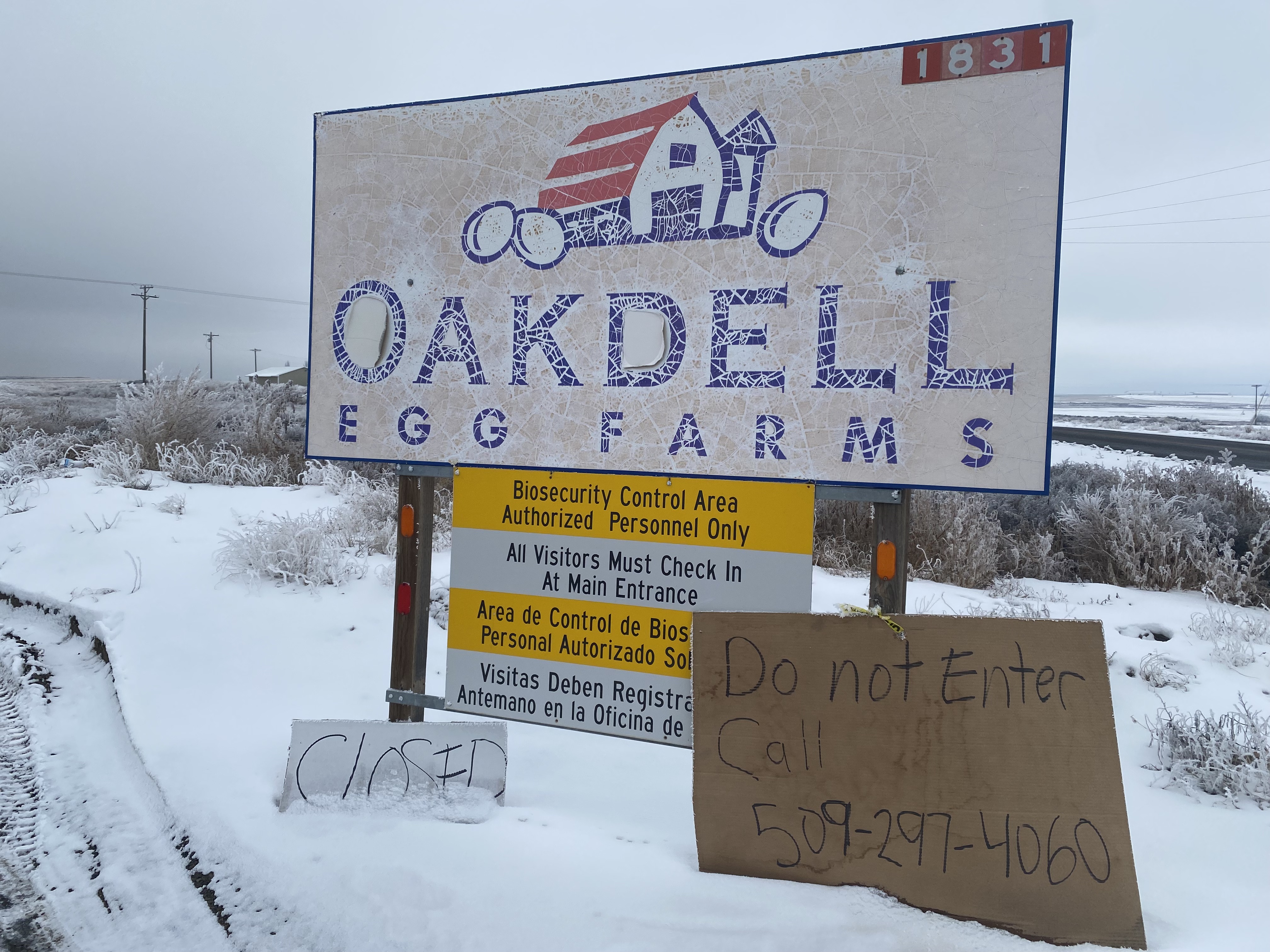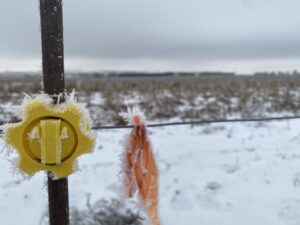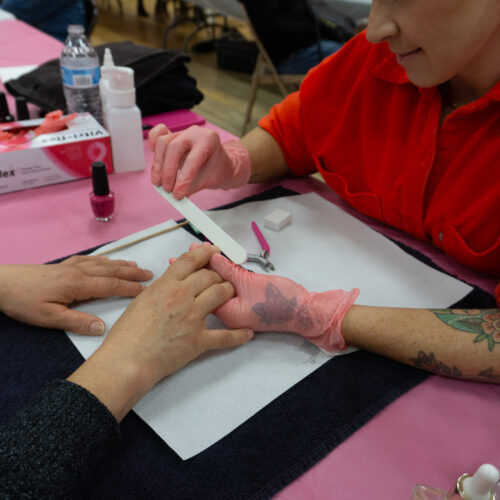Hoar frost collects like icy-armored spikes against the steady trunks of rural poplars.
The stout trees define the edges of vast snowy crop fields in Franklin County, in southeast Washington, from the white blur of flat land everywhere else.

A worker waits near a white pickup for cars to pass so he can spray their tires with disinfectant at Oakdell Farms in Franklin County, Washington. Credit: Anna King, Northwest News Network
But this bleak scene is made more grim, when approaching Oakdell Farms off of East Sagemoor Road, where highly pathogenic avian influenza is in a commercial flock of chickens. At the edge of the farm, a man in Carhartt-colored winter coveralls sits warming from the 20-degree temps in a small white pickup with a utility light flashing.
When cars approach from the farm side toward the highway, he scrambles from the truck to stop them. He sprays a pink disinfectant from a large sprayer bottle with a hand wand over the tires. Signs out front – some hand made on cardboard – read “Biosecurity Control Area, Authorized Personnel Only,” and “Do not enter, call …”
Oakdell Egg Farms, Inc.
The Washington State Department of Agriculture said 1,015,500 birds are affected, although they won’t name the facility. But, Cliff Lillywhite, president of Oakdell Egg Farms, Inc., confirms that it’s their flock.
It’s been stressful: The leaders and about 45 full-time staff are helping government officials dispatch the more than a million egg layers.
“You know we have an obligation to take care of our birds,” Lillywhite said. “We don’t like to see our birds suffer. And this is a very horrible disease that affects the birds. We don’t like to see that. There is certainly a financial aspect of it too – dead birds don’t lay eggs.”
Each chicken lays about an egg a day, so Lillywhite said it’s also stressful to not be able to market those many eggs. Oakdell Farms claims to be the largest egg-laying operation in the Intermountain West.
The egg-laying business north of Pasco has massive facilities. Several large desert-brown chicken warehouse-like buildings are lined up in a neat row off the highway behind a corn field.
Lillywhite said their operation is a three-generation family business.
“I think the egg business is extremely important because the nutritional value of an egg is unsurpassed by virtually any other food item,” Lillywhite said. “It’s kind of the standard whereby any other protein items are compared. I, personally, and many in our company feel a deep obligation to help consumers to make wise choices in their diet and use eggs appropriately to help them achieve a normal, healthy diet. We believe deeply in the nutritional value of an egg.”
Lilywhite said after his flock is put down – and the facilities are disinfected – U.S. Department of Agriculture officials will swab and test the buildings. And then, the whole facility has to sit vacant for a couple weeks. It will take nearly six months to raise reliable egg layers from baby chicks.

















